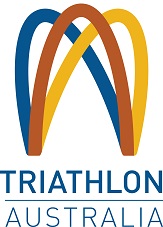Have you ever wondered what it would be like to pursue a career in the sporting industry?
This National Careers Week we felt that it would be the perfect time to introduce you to some of the team here at Triathlon Australia and give you an insight into what it’s like to work in sport.
National Careers Week is an initiative of the Career Industry Council of Australia and aims to celebrate careers, career development, career development services and career development practitioners.
Today we're catching up with Athlete Wellbeing and Engagement Manager, Kate Naess, and National Lead - Physiology, Research and Innovation, Avish Sharma to hear about their experiences in High Performance sport.
Name: Avish Sharma
Job Title: National Lead – Physiology, Research and Innovation
What is your role at Triathlon Australia?
I lead the physiology support for Triathlon Australia across our network of elite coaches and categorised athletes.
Physiology is the science of human function, so one way you could look at the role of a sports physiologist in triathlon is that they work to optimise human function to improve help the athletes swim, bike and run as fast as they can. The main way in which I do this is assisting coaches with the planning and monitoring of training, and ensuring that the balance of training volume, frequency and intensity are optimised for a particular time in the season, relative to the individual athlete’s physiology, goals and the demands of competition.
What does a typical day in your job look like?
My role is centred around interactions with coaches and athletes. In a typical week, I aim to get to a few training sessions each week to observe the athletes, implement specific interventions, and get feedback from the coaches as to how things are progressing and whether there needs to be modification of a plan. I also spend time each day reviewing the training completed by athletes that I monitor, and if something catches my eye I will generally follow up with them or their coach.
I work closely with colleagues from other sports science or clinical disciplines (e.g. nutrition, physiotherapy, strength and conditioning, medicine) and time is often spent communicating as a group about the best holistic approach to help any given athlete with what they are working on at that time. In addition, I also work with our pathway and coaching teams on longer term performance pathway strategy so that future generations of triathletes continue to be successful.
What your favourite part about your particular role at Triathlon Australia?
I particularly enjoy the problem solving aspect of the role, more specifically, I enjoy using the available information to come up with evidence informed solutions to problems.
By definition, elite athletes are a miniscule, specialised component of the population, and so the scenarios we are often presented with aren’t easily remedied by replicating a solution you might find in a textbook or on PubMed. I really enjoy the way the role pushes me to think outside of the box, apply my scientific background and critical thinking skills towards solving a problem, and build relationships and work collaboratively with others.
Why did you choose to pursue a job in High Performance sport?
I chose to pursue a role in High Performance sport because I love sport, I love winning, I enjoy high pressure situations, and I wanted to help people without having to spend much time at a desk.
Tell us about one memorable moment from your career in High Performance sport?
Athletes executing their plans at the biggest races always provide memorable moments and enjoyable team dinners. However, I get the most joy out of the day-to-day grind of helping the athletes and coaches, as well as solving problems with my colleagues in performance support. Often the most memorable moments for me are sitting down for a meal or drink with a coach or colleague for a quiet celebration of a job well done and to plan the next project.
What advice would you give to someone wanting to pursue a career in sport?
Follow your passions with a strong work ethic and the rest (e.g. employment, remuneration, enjoyment) will take care of itself.
The cliched saying ‘do something you love and you’ll never work a day in your life’ has rung quite true for me. A career in high performance sport can be extremely rewarding as well as mentally stimulating, but there are also challenging, unglamourous and tiring aspects to the role. Being able to endure through these is necessary. So my advice to those looking to pursue a career in sport would be foremost to be sure you love what you’re doing, as it will make the enduring periods of a career in sport much more tolerable.
Job Title: Athlete Wellbeing & Engagement Manager
What your favourite part about your particular role at Triathlon Australia? The best part about my role is having the opportunity to drive the wellbeing culture strategy across the High Performance Olympic and Paralympic programs.
Wellbeing in high performance sport has evolved considerably over the last 2-3 years where ‘Wellbeing culture’ refers to the mental, physical and emotional health of athletes (and staff), which contributes to sustained performance and success in elite sport. I am proud to work within a sport and team that acknowledges a holistic approach to wellbeing as key for the future of our athletes.
Why did you choose to pursue a job in High Performance sport?
As a Paralympian with over 15 years’ experience as a former athlete, and a registered Psychologist, it was an area I had always envisioned working in after I retired from racing. Sport gave and taught me so much during my years as an athlete, this was a perfect opportunity to give back within an area I am so passionate about both personally and professionally.
Tell us about one memorable moment from your career in High Performance sport?
There are many, but winning my first international race back on the World Triathlon circuit just 8 months after giving birth and only a few days after my father in law had passed was a significant moment.
What advice would you give to someone wanting to pursue a career in sport?
Knowing what it is like to be an athlete within the sport you work with will always be invaluable to your role. Networking, building relationships, listening and learning as you go as well as being true to your own values are key.
On Tuesday we caught up with Technical & Events Assistant, Kaity Brunsdon and Operations Manager, High Performance, Daniel Mangano. Read below to hear about their experiences working in sport.
Name: Kaity Brunsdon
Job Title: Technical & Events Assistant
What is your role at Triathlon Australia? I look after technical official training, development, and accreditation; overseeing the sanctioning of events; planning National Event Calendars; and provide operational assistance for domestic High Performance races.
What does a typical day in your job look like? Every day is different, from helping answer questions from members regarding Race Competition Rules, working with event organisers to host World Qualifying Events or Australian Championship Events, to helping select Technical Official teams for Events of National Significance. I also provide administrative support to Oceania Triathlon.
What is your favourite part about your particular role at Triathlon Australia? The people! I get to work and interact with so many types of individuals across the country. Everyone has a set of skills and experience that they are willing to share with others. In particular, the senior technical officials – the passion and knowledge they have and willingness to share this knowledge with new officials is a credit to themselves. The technical official program is very supportive, and everyone helps each other.
Why did you choose to pursue a job in sport? I’ve always been involved in sports from a young age. My passion probably ignited watching my older brother succeed in a variety of sports, including breaking World Records in Down Syndrome Swimming. Witnessing firsthand the benefits that sport brings to individuals and the wider community inspired me to pursue a career in this field (no pun intended).
Tell us about one memorable moment from your career in sport? Working on the Gold Coast Commonwealth Games 2018 is the biggest event I’ve been involved in, so therefore the most memorable. I was the Project Assistant for the Look and Signage Team for almost 2 years, managing the schedule for important milestones, helping with Bump In and Out of venues and providing support to the rest of the team. In saying this, all events require hard work and perseverance but are always rewarding in the end.
What advice would you give to someone wanting to pursue a career in sport?
Put yourself out there and seek volunteer opportunities or an intern position - it’s a great way to network and immerse yourself in the industry.
Name: Daniel Mangano
Job Title: Operations Manager, High Performance
What is your role at Triathlon Australia? I look after all of the operations and logistics for the High Performance Program at Triathlon Australia. This includes managing the High Performance budgets, overseeing travel logistics for the Olympic and Paralympic cohort and staff, operation oversight of elite and sub elite racing, assisting with camp planning for our various squads, managing contracts for all of our contracted staff and plenty more.
What does a typical day in your job look like? There’s no such thing as a typical day in my role, every single day is different. For the most part, my job varies depending on the season. In May to September, a large portion of my role is managing the logistics and operations for overseas racing, supporting staff movements, and keeping an eye on any racing or camps that may be coming up. From October to April, it’s more of a domestic focus on managing camps, racing, and the logistical and operational facets of those that come up.
What your favourite part about your particular role at Triathlon Australia? My favourite thing about my role is TA is the opportunity to problem solve. I like being able to test theories and find solutions to problems where other people can’t, and the job I do provides countless opportunity for that. It keeps me on my toes, keeps the job different each day and makes it enjoyable for me.
Why did you choose to pursue a job in High Performance sport? I worked at our State Association, Triathlon Queensland for five years and was looking for an opportunity to challenge myself. I’m a sport lover and the High Performance element of sport has always fascinated me. It’s pretty cool to get to live and breathe your passion for sport every day.
Tell us about one memorable moment from your career in High Performance sport? It’s really hard to define a single moment when you love what you do. Even the most mediocre stuff thrills me, like developing strategy or solving problems that help push the sport and the team forward in some small way. If I had to pick one, being a cog in the team that produced gold medal winning performances at the 2018 Commonwealth Games was a pretty special moment.
What advice would you give to someone wanting to pursue a career in sport? Get as much experience as you can. The more experience you can get, whether it’s as a uni student taking on work experience or volunteering at your local club, the more experience you get, the better placed you will be when you break into the industry.


Follow us on:


